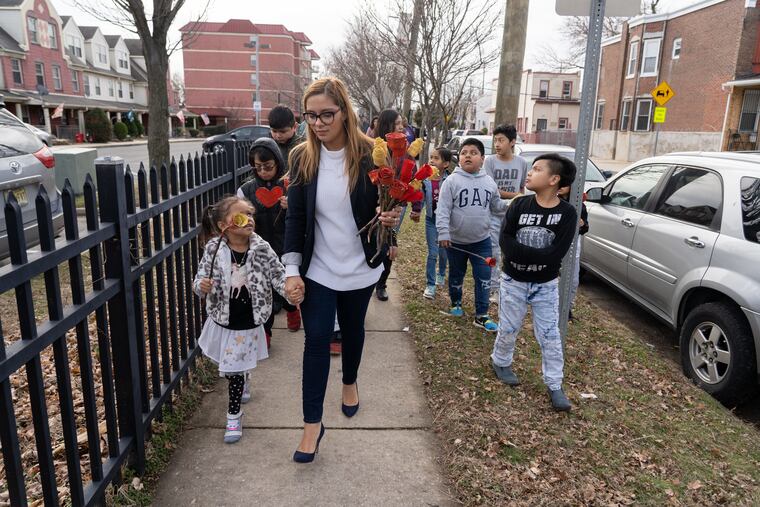Strange N.J. law allows establishment candidates at the top of the ballot. This must change.
When Councilwoman Felisha Reyes-Morton ran for mayor last year, her name appeared on the other side of the ballot, making it hard for voters to find her.

As a member of Camden City Council, I used to be the kind of candidate who could never lose an election. But when I broke party ranks last year, I learned firsthand about the underbelly of party politics, and the obscure voting rules politicians can take advantage of to subvert the democratic process.
In overwhelmingly Democratic cities like Camden, where Republican and independent candidates don’t stand a chance, candidates aren’t chosen on Election Day. Instead, the most powerful officials are elected in the primary, by the small minority of registered voters who show up.
In 2021, fewer than 3,000 people out of a city of 73,000 chose Vic Carstarphen as the Democratic candidate for mayor by voting for him in the primary. As the Democratic establishment-backed candidate, his name was printed on the ballot’s county line, where voters saw it first. With Carstarphen’s name in such a prominent position, it was a race he couldn’t lose.
This trick is also part of the reason I won my first race. When I was elected to Camden City Council in 2019, I had the support of the county Democratic Party and access to all its resources: staff to run the campaign, raise money, handle filing deadlines, and get people to the polls. On Election Day, my name ran on the ballot’s county line, too.
Those were the privileges that came with being part of the establishment. They guaranteed that I would win. I didn’t understand those privileges until I decided to risk them.
Last year, Camden Mayor Frank Moran, a respected city leader for decades, decided to resign before his term was over. Immediately, a Democratic Party operative who doesn’t even reside in Camden called to tell me the party had already chosen Carstarphen to be the next mayor. I was expected to support their choice without question so that he could be swiftly appointed to the highest office in the city, then run as an incumbent when the term ended, and be assured an easy victory in the next primary and general elections.
» READ MORE: Camden elections are usually formalities. Two mayoral challengers are trying to make this one a race.
This process of choosing Camden’s mayor wasn’t open to the public. Even as a councilwoman, I wasn’t included in the conversation. That meant the North Camden and Cramer Hill communities I represent didn’t have a seat at the table.
I realized that if my voice as an elected official didn’t matter to those in charge, neither did those of my neighbors. That’s why I decided to break with the party.
In 2021, I ran for mayor in the June primary against Carstarphen. This left me without the funding or organizational advantages I once had at my fingertips. Since Camden County’s Democratic leaders had previously told me not to worry about the details of running a campaign, I had no idea how to do it. When the ballots came out, my name and those of other primary candidates appeared on the other side of the ballot, far away from where Carstarphen’s name was printed next to the county line.
Unlike other states, New Jersey’s laws allow county officials to design ballots around party establishment insiders. Instead of grouping the candidates around the position up for election, the establishment candidates are all loaded in the front of the ballot, with challengers off to the side. That makes it hard to see all the choices, or even understand that there are multiple people running for each office. Those unusual rules have helped Camden County Democrats maintain control over Camden for decades.
Appearing first on the ballot line is like winning a golden ticket. Your name is placed with the big candidates, like the governor. That makes you look like the best option. The names of other candidates are strategically placed across the ballot and into columns that make them look like riskier, less “traditional” choices.
Abolishing the ballot line, and listing all candidates with equal prominence, would make elections fairer by making them competitive. It would encourage more residents of cities like mine to run for office. So many people in Camden want to serve their community. We need to celebrate that, not make it harder for them to be part of the political process.
The role of the ballot line in New Jersey politics may have once been an open secret, but now it’s out there. And we all need to make it our business. I encourage all New Jersey residents to visit abolishtheline.org and get involved in the effort to restore democracy to our communities.
Felisha Reyes-Morton is a Camden city councilwoman and a lifelong resident of Camden.